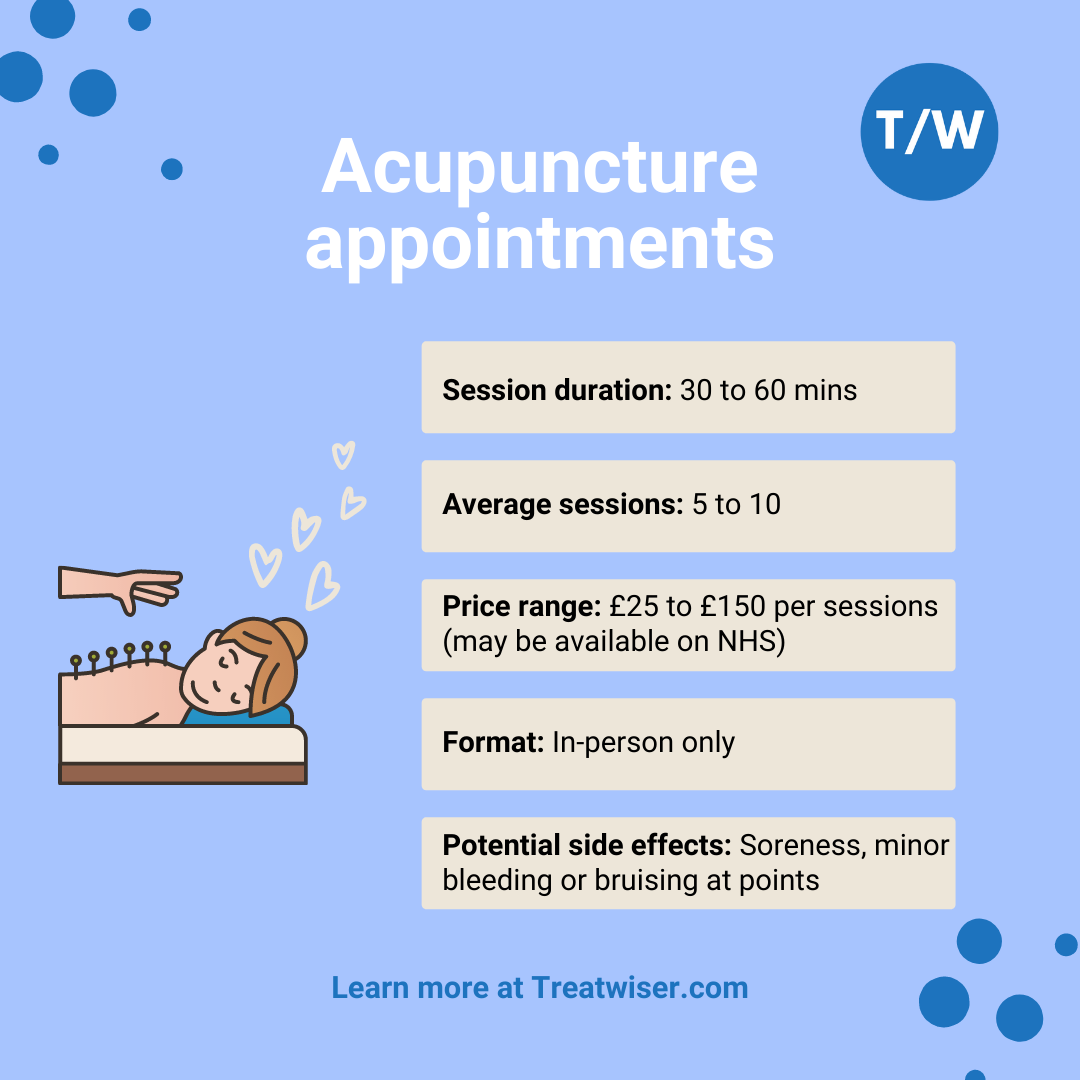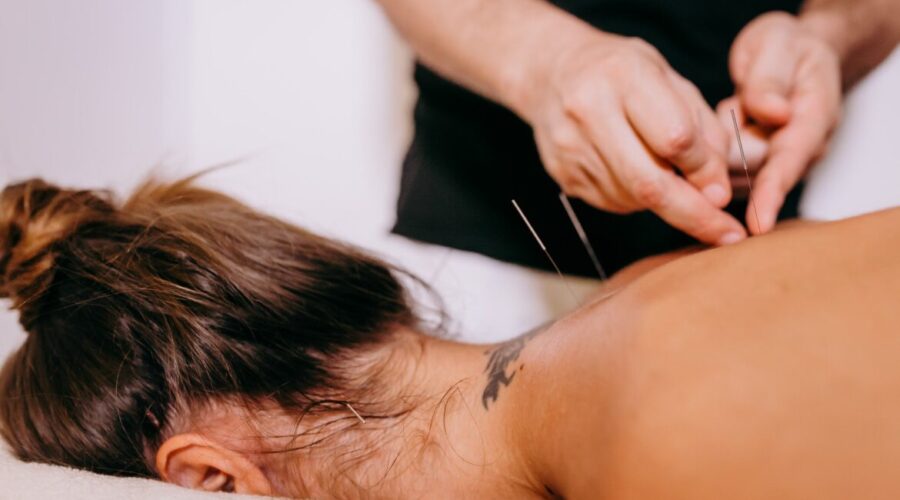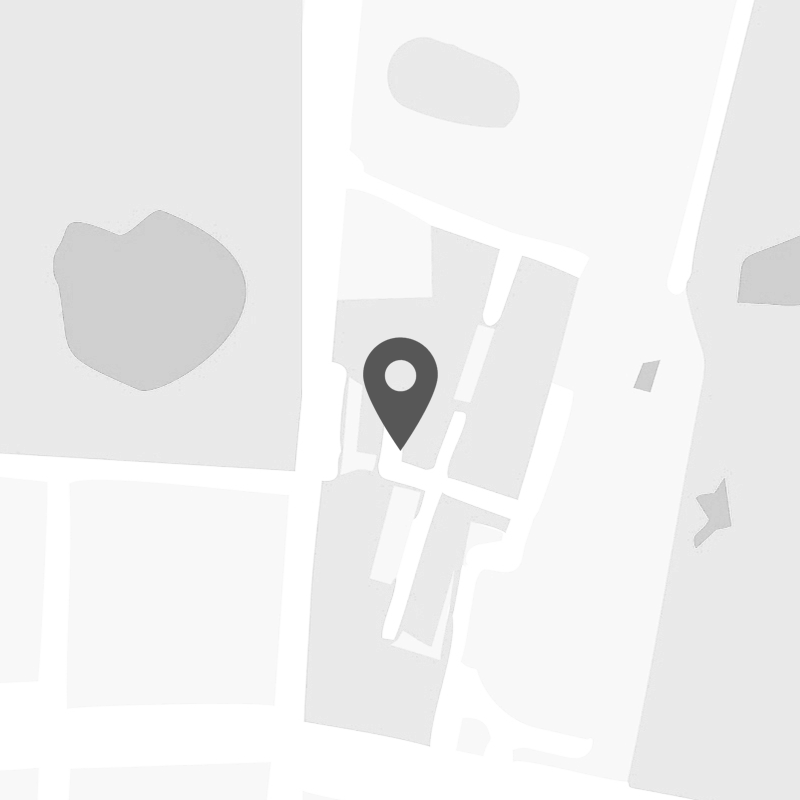With roots in traditional Chinese medicine, acupuncture therapy involves inserting very fine pre-sterilised needles into parts of the body for therapeutic or preventative purposes.
There is evidence to suggest that acupuncture is an effective at treatment option for a variety of conditions including forms of chronic pain, chronic tension-type headaches as well as migraines.
This page will explore the fundamental concepts of this ancient Chinese treatment technique, supporting evidence, Acupuncture benefits as well as how to start your Acupuncture journey.
Table of contents
- 5 interesting facts about acupuncture?
- What is acupuncture?
- What is the theory behind acupuncture?
- When and how is acupuncture used?
- What is the evidence to support acupuncture?
- What can I expect as an acupuncture patient?
5 interesting facts about acupuncture

What is acupuncture?
The origins of acupuncture therapy are rooted in Chinese medicine over 3,000 years ago
Acupuncture and similar techniques are believed to have originated in China over 3,000 years ago. It is only in recent decades that acupuncture has started to become an accepted treatment for certain conditions by the medical community.
The ancient Chinese believed that your health and the health of every organism is determined by the flow of qi or vital life energy around the body. When this energy becomes blocked or stagnant then the result is poor physical or mental health.
As such, acupuncture therapy is focused on inserting needles in specific locations to rebalance the flow of vital life energy and restore health and wellbeing.
Like other holistic treatments, Acupuncture is focused on healing the body as a whole rather than specific symptoms.
What is the theory behind acupuncture?
Traditional acupuncture manipulates acupoints to improve flow of vital energy
How does acupuncture work? Traditional Chinese medicine believes that good physical and mental health occurs when qi or vital life energy is flowing well throughout the entire body. Too much qi or energy excess could be caused by conditions such as infections or from high levels of stress or anxiety. Too little qi or energy deficiency may be caused by aspects such as lack of food, social interaction or exercise.
According to acupuncture theory, the human body comprises 12 regular meridians and 8 extraordinary meridians, major energy pathways which enable qi to circulate around the body including to organs and organ systems.
Chinese acupuncture believes that there are around 360 acupoints along the 12 meridians where energy can collect and pool – these are located from just beneath the skin to deeper and documented on acupuncture point charts. These acupoints can be stimulated through needles to enhance flow of vital life energy across the body.
Western acupuncture stimulates the body’s natural healing abilities
Western acupuncture which is sometimes known as medical acupuncture is an adaptation of traditional acupuncture. The therapy is different as it does not follow the concept of qi energy, instead using fine needles to stimulate the body’s natural healing abilities.
Although Western acupuncture is sought by patients for a broad range of purposes, it is most commonly used for pain relief.
When and how is acupuncture therapy used?
Acupuncture is used for a broad range of conditions
What is acupuncture for? People commonly seek out acupuncture for the following reasons, however more research may be required to support its efficacy, and you should always speak to your GP or qualified medical practitioner before booking any appointments:
- Allergies
- Headaches and migraines
- Anxiety and low mood
- Chronic pain (eg., back, neck, head)
- Joint pain
- Dental pain
- Post-operative pain
- Sprains
- Chronic Tension-type headaches
- Morning sickness
- Insomnia
- Menstrual cramps
- Premenstrual syndrome
- Maternity
- Fertility
Acupuncture is used for other conditions although the evidence is not always conclusive.
Acupuncture therapy uses a range of treatment and techniques
Although there are various diagnosis techniques and needling styles, all are derived from traditional Chinese medicine and generally use hair-thin, solid needles.
In addition to the use of needles, other forms of treatment can be applied to acupoints. These include:
Moxibustion – Heating technique to stimulate acupoints and resulting healing through the burning of a therapeutic herb called moxa. Commonly used on parts of the body where needles cannot be inserted such as the naval and nipples.
Cupping therapy – Utilizes a glass, plastic or bamboo cup to create suction on an acupuncture point or area of skin above a painful muscle with the aim of boosting circulation and releasing energy.
Tui na massage – Translating as “push-grasp”, Tui na is a form of therapeutic massage that applies steady finger pressure to specific
acupoints, and manual manipulation of muscle and joints. Treatments can vary for gentle to deep-tissue and is commonly used in young children and people with musculoskeletal conditions.
Electrostimulation – Specialised form of acupuncture which uses electric units, to stimulate acupuncture points and increase energy flow.
What is the evidence to support acupuncture therapy?
So how effective is acupuncture? Acupuncture has been gaining more acceptance from the mainstream medical establishment in recent decades. This is partly in response to the evidence, with studies showing the benefits of acupuncture including how it may be helpful for improving a range of conditions.
For example, the World Health Organization has cited acupuncture’s ability to help with treatment of over 40 conditions and the National Institute of Health and Care Excellence (NICE) recommends its use for migraines, chronic tension-type headaches and chronic pain (1, 2, 3). Research is ongoing to understand whether acupuncture can be helpful for various other health conditions too including acupuncture for fertility (4).
What can I expect as an acupuncture patient?
The acupuncture therapy appointment
At your first appointment, a registered acupuncturist will take a health and lifestyle history and discuss your concerns/presenting conditions.
There may be many questions including some that appear irrelevant to your initial complaint. It is typical for specaialist acupuncturists to ask questions about sleeping patterns, sexual function, digestion, urinary function, and stress levels.
The acupuncturist will usually also take your pulse and observe your tongue as these help with a diagnosis.
Treatment can take the form of applying needles to acupoints on your body but can also extend to moxibustion (heating moxa to stimulate acupoints), cupping (creating suction with cub to boost circulation) and tui na (therapeutic massage) treatments.
Your first appointment typically lasts up to 1 hour with treatments lasting around 20-30 minutes.
At the end of the session, your acupuncturist will probably ask how it felt, discuss future treatment options, and if required, prescribe supplements or herbal formulae. Future appointments may be as regular as once or twice per week.

How do I find an acupuncturist and what qualifications should they have?
Acupuncture is available on the NHS in limited circumstances and then it is only provided by GPs or physiotherapists. As a result, the majority of patients will typically choose a private treatment route when seeking acupuncture services.
There is currently no statutory regulation for acupuncture in the UK, so it is important to check that your acupuncturist is appropriately qualified and fully insured. It is highly recommended that you only choose a certified acupuncturist who is a member of one of the voluntary bodies as they will ensure that they fulfil the minimum qualification standards and hold them to a code of ethics.
Chinese Acupuncture
- The Acupuncture Society
- The Association of Traditional Chinese Medicine
- The British Acupuncture Council
- Chinese Acupuncture and Herbal Medicine Alliance
- Federation of Holistic Therapists
Medical Acupuncture
- Acupuncture Association for Chartered Physiotherapists
- The British Medical Acupuncture Society
- Federation of Holistic Therapists
You can also use Treatwiser’s directory to find an acupuncturist near me. Use the search features to narrow your search by location (e.g., find acupunture in London), professional body membership status, and more.
We’ve also put together this short guide on how to find an acupuncturist.
How much will it cost?
For patients unable to receive treatments on the NHS, prices can vary substantially with the majority of 30 minute or one hour appointments ranging from £25 to £150.
It is important that you receive full visibility on treatment costs before agreeing to commence. You may also want to speak to your GP to get acupuncture information and ensure that the treatment is safe for your health profile.
How many appointments will I need and over what period?
Occasionally a single treatment may be enough, a longer course of acupuncture usually has longer lasting results with a typical course lasting five to ten sessions.
Best acupuncture practice means that you may also find that appointment intervals increase over time as the condition responds to the treatment.
Does acupuncture therapy hurt?
If carried out by a qualified therapist, acupuncture is largely painless although a slight pricking sensation may be experienced as needles are inserted, with any slight tugging or aching sensations passing away shortly after.
It is important to let the acupuncturist know if treatment is uncomfortable. Quite often a slight change to needle position or pressure can eliminate discomfort.
How will I feel after?
Many patients report feeling very peaceful and relaxed during and after the appointment and it is not uncommon for people to fall asleep. So don’t plan anything too strenuous immediately afterwards.
What are the risks associated with acupuncture treatments?
Most risks from acupuncture therapy are mitigated by choosing a qualified acupuncturist using sterile single-use disposable needles.
Commonly reported side effects include soreness, minor bleeding or bruising at points where needles were inserted.
You are higher risk of side-effects if you:
- Have a bleeding disorder or tare taking blood thinners as your chances of bleeding or bruising are increased
- Use a pacemaker as small electrical pulses in some treatments may affect its operation
- Are pregnant as some forms of acupuncture are believed to stimulate labour
What do other patients say about acupuncture
Read some testimonials to hear what patients are saying about their acupuncture experiences:
- Acupuncture Treatment For Pain Relief: Yvonne’s Experience
- Acupuncture For Neck Pain: Angela’s Experience
Resources and further acupuncture information
1. World Health Organization. Viewpoint on Acupuncture (Geneva, Switzerland: World Health Organization, 1979)
2. https://www.nice.org.uk/guidance/cg150/chapter/Recommendations/
3. https://cks.nice.org.uk/topics/chronic-pain/management/management/
4.https://www.ncbi.nlm.nih.gov/pmc/articles/PMC6182526/#:~:text=Acupuncture%20as%20a%20treatment%20for,the%20endocrine%20system%20and%20hormones
DISCLAIMER: The Site cannot and does not contain medical / health advice. The medical / health information is provided for general informational and educational purposes only and is not a substitute for professional advice. Accordingly, before seeking any form of medical advice, diagnoses or treatment based upon such information, we encourage you to consult with your GP or other qualified health practitioner. You must never disregard professional medical advice or delay in seeking it because of something mentioned on this Site. The use or reliance of any information contained on the site is solely at your own risk.





